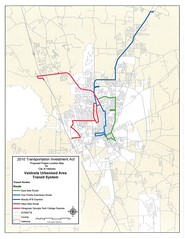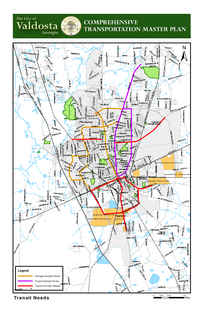Laura Vecsey wrote in Pennlive 16 June 2011, Harrisburg City Council looks to introduce resolution that would allow bankruptcy paperwork to be prepared:
It seems Harrisburg applied for Act 47, which is apparently a state bankruptcy protection plan last October, but now: Continue readingHarrisburg City Council member Brad Koplinski is seeking to introduce a resolution that will allow the council to prepare paper work that might become necessary should a majority of the council decide to file for Chapter 9 bankruptcy.
Koplinski said the urgency of being prepared escalated Thursday when state Sen. Jeffrey Piccola introduced legislation that called for a state takeover of Harrisburg should the distressed city fail to adopt the Act 47 plan it was presented Monday.







 …including the creation and maintainance of a Public Transit System in the City
of Valdosta and Greater Valdosta-Lowndes County.
…including the creation and maintainance of a Public Transit System in the City
of Valdosta and Greater Valdosta-Lowndes County.


